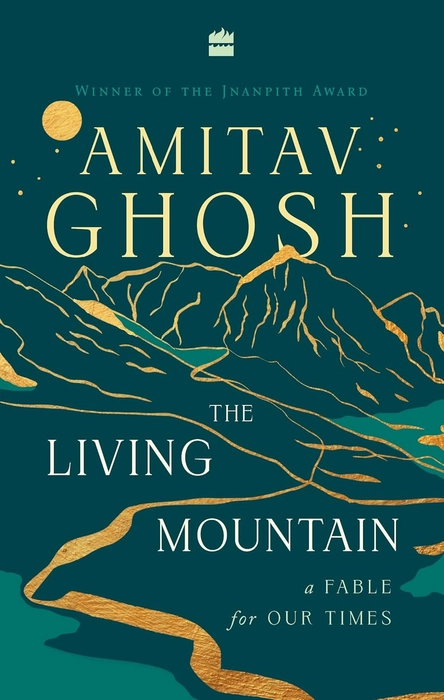Prakash Books - The Living Mountain
Product details
Overview: The Living Mountain is a fable-like story from Amitav Ghosh, reflecting on humanity's exploitation of nature through the tale of Mahaparbat, the sacred mountain, and its inhabitants. Ghosh’s narrative captures the relationship between the indigenous valley people who revere and live harmoniously with the mountain, and the Anthropoi—outsiders driven by commercial greed—who devastate the environment for profit. The book is an urgent allegory about environmental degradation and serves as a call to recognize the consequences of humanity’s relentless extraction of natural resources.
Key Themes:
-
Environmental Conservation: The story of Mahaparbat and its destruction emphasizes the urgent need for sustainable interactions with nature, warning against exploitation.
-
Human Hubris vs. Harmony with Nature: The indigenous people’s reverence for the mountain contrasts starkly with the Anthropoi’s attitude of ownership and entitlement, symbolizing two different worldviews and their outcomes.
-
Collapse of Ecosystems: Ghosh uses Mahaparbat’s destruction as a metaphor for environmental disasters and climate change, illustrating the irreversible harm inflicted by human greed.
-
Modernity vs. Indigenous Knowledge: The book draws attention to indigenous wisdom and practices that sustain nature, highlighting the value of these systems in the face of modern, exploitative models of development.
Writing Style: Ghosh’s prose is elegant, minimalist, and symbolic, creating a tone akin to traditional folktales. The dreamlike narration makes the story feel timeless and universal, underscoring the allegorical nature of the tale. Ghosh’s storytelling is accessible, yet layered with meaning, which makes it effective across age groups and engaging for readers familiar with environmental literature.
Impact and Relevance: The Living Mountain resonates in today’s context of ecological crises, reflecting on the destructive patterns that have led to global issues such as climate change and pandemics. Ghosh’s fable is a reminder of the balance that must be restored between human ambition and environmental preservation, speaking especially to those concerned with sustainability and climate advocacy.
Conclusion: Amitav Ghosh’s The Living Mountain is a thought-provoking and timely story that echoes the importance of environmental mindfulness. Its haunting narrative invites readers to reflect on the ongoing climate crisis and re-evaluate humanity's approach to nature. This allegory will appeal to readers of all ages, offering wisdom that transcends generations—a gentle yet profound reminder of the interconnectedness of all life.



